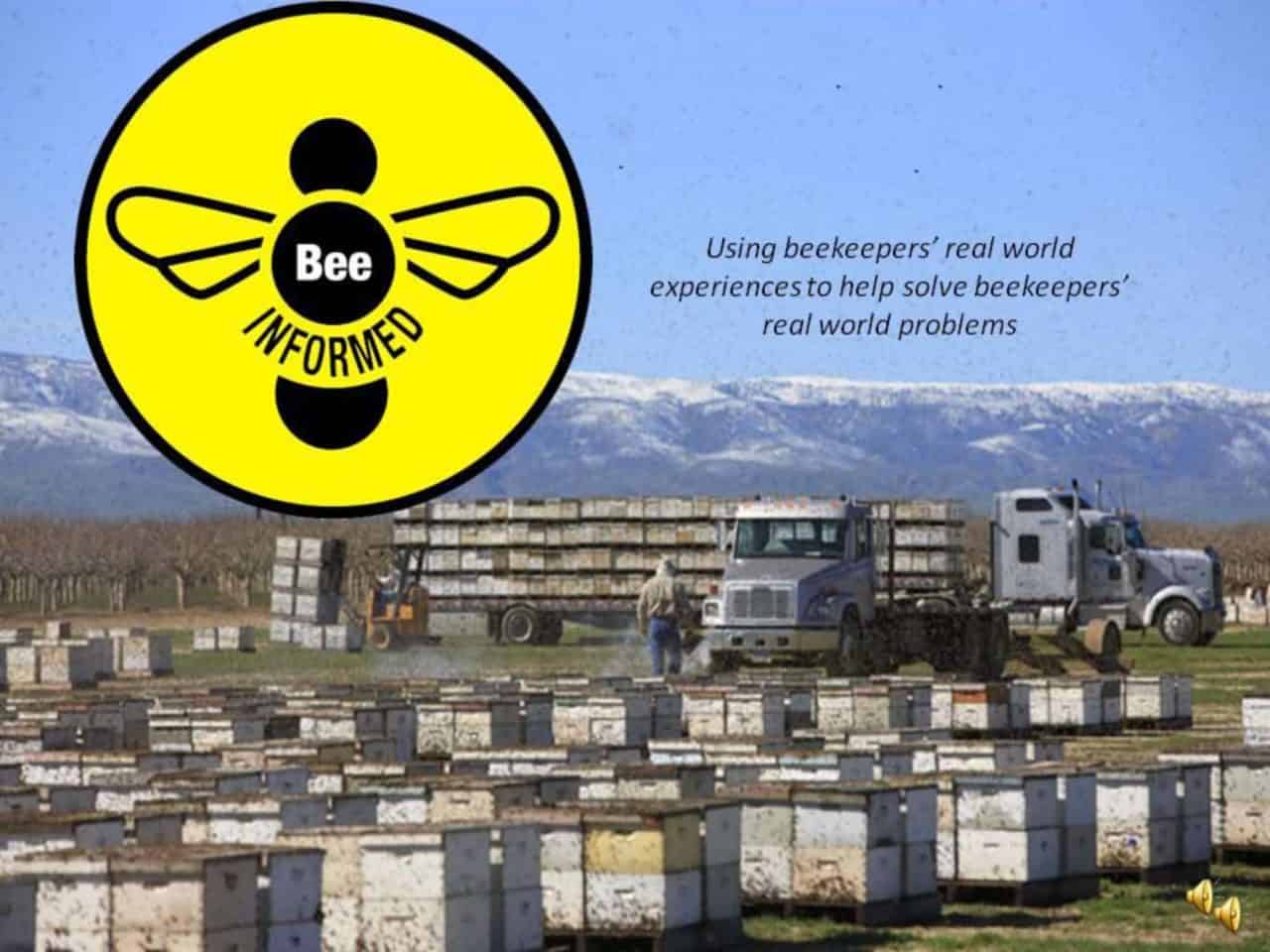A national survey of managed honey bee 2012-2013 annual colony losses in the USA: results from the Bee Informed Partnership Abstract: For the past six years in which overwintering mortality of honey bee colonies has been surveyed in the USA, estimates of colony loss have fluctuated around one-third of the national population. Here we report on the losses for the 2012-2013 seasons. We collected data from 6,482 US beekeepers (6,114 backyard, 233 sideline, and 135 commercial beekeepers) to document overwintering mortality rates of honey bee colonies for the USA. Responding beekeepers reported a total 30.6% (95% CI: 30.16-31.13%) loss of US colonies over the winter,…
Links
Food and Farm on America’s Web Radio
Dr. Dennis vanEngelsdorp talking with Ray Bowman on Food and Farm from America's Web Radio
APHIS US Honey Bee Pest and Disease Survey 2011/2012 Survey Report
The APHIS 2011/2012 Honey Bee Pest and Disease Survey report This report details the result of a year long, 35 state honey bee survey that, as a primary goal, looked for invasive species such as the parasitic mite, Tropilaelaps spp., the Asian honey bee, A. cerana and Slow Paralysis virus (SPV), not known to be in the US at this time. Further honey bee health data were collected and will be added to the Bee Informed Partnership database to help interpret ongoing and future epidemiological studies. This report and previous year reports are available at http://www.aphis.usda.gov/plant_health/plant_pest_info/honey_bees/index.shtml
BIP at SESYNC
"Dr. Dennis vanEnglesdorp of the University of Maryland describes the newly-created Bee Informed Partnership. Utilizing beekeepers real world experiences to help solve beekeepers real world problems."
Urban Beekeeping in Washington
Hunt. (2012). The Rise of Urban Beekeeping in Washington. The Washingtonian. November 2012. "Colony Collapse Disorder is a real concern—but some backyard beekeepers are trying to combat it." Hunt. (2012). The Rise of Urban Beekeeping in Washington. The Washingtonian. November 2012.
Boots on the Ground: A Radical Shift in the Interface Between Research and Real World.
McNeil. (2012). Boots on the Ground: A Radical Shift in the Interface Between Research and Real World. Bee Culture. April 2012. "Booooos from the back of the audience were directed to the young woman on the stage at the California Beekeepers Association Conference. Without the context, the message could easily have been misconstrued....." McNeil. (2012). Boots on the Ground: A Radical Shift in the Interface Between Research and Real World. Bee Culture. April 2012.
Coordinated BIP effort aims to cut in half annual bee colony losses.
BEE Informed Partnership: Coordinated BIP effort aims to cut in half annual bee colony losses. by Richard Lehnert Good Fruit Grower magazine article, March 15th, 2012. "After five years of annual colony losses near or above 30 percent, beekeepers have settled in for the long haul in their struggle to find solutions to the problem of unsustainably high honeybee death losses. Scientists have also settled in to help them..."continue article here...
Worldwide Honey Bee Colony Losses Continue
http://www.ibra.org.uk/articles/US-honey-bee-winter-colony-losses-2010-11 International Bee Research Association The world's longest established apicultural research publishers Press Release[embargoed until 00:01 GMT on 1/2/12] Worldwide honey bee colony losses continue Since 2006 there has been concern worldwide about losses of honey bee colonies, especially the phenomenon of “Colony Collapse Disorder” in the USA. Information about the extent of these losses has,to date, been patchy, unsystematic and difficult to compare year on year and from country to country. Today, for the first time, the results of systematic surveys in Europe, north America, China, Israel and Turkey are published together in the Journal of Apicultural Research. The research has been carried out…
HoneyBeeNet: The Nectar Flow by Hive Scale Data and Satellite Imagery
honeybeenet.gsfc.nasa.gov Hive scale data collected by participating beekeepers, satellite imagery of hive scale sites, and instructions on how to participate in collecting hive scale data is available at honeybeenet.gsfc.nasa.gov
APHIS US Honey Bee Pest and Disease Survey 2010/2011 Survey Report
The APHIS 2010/2011 Honey Bee Pest and Disease Survey report


